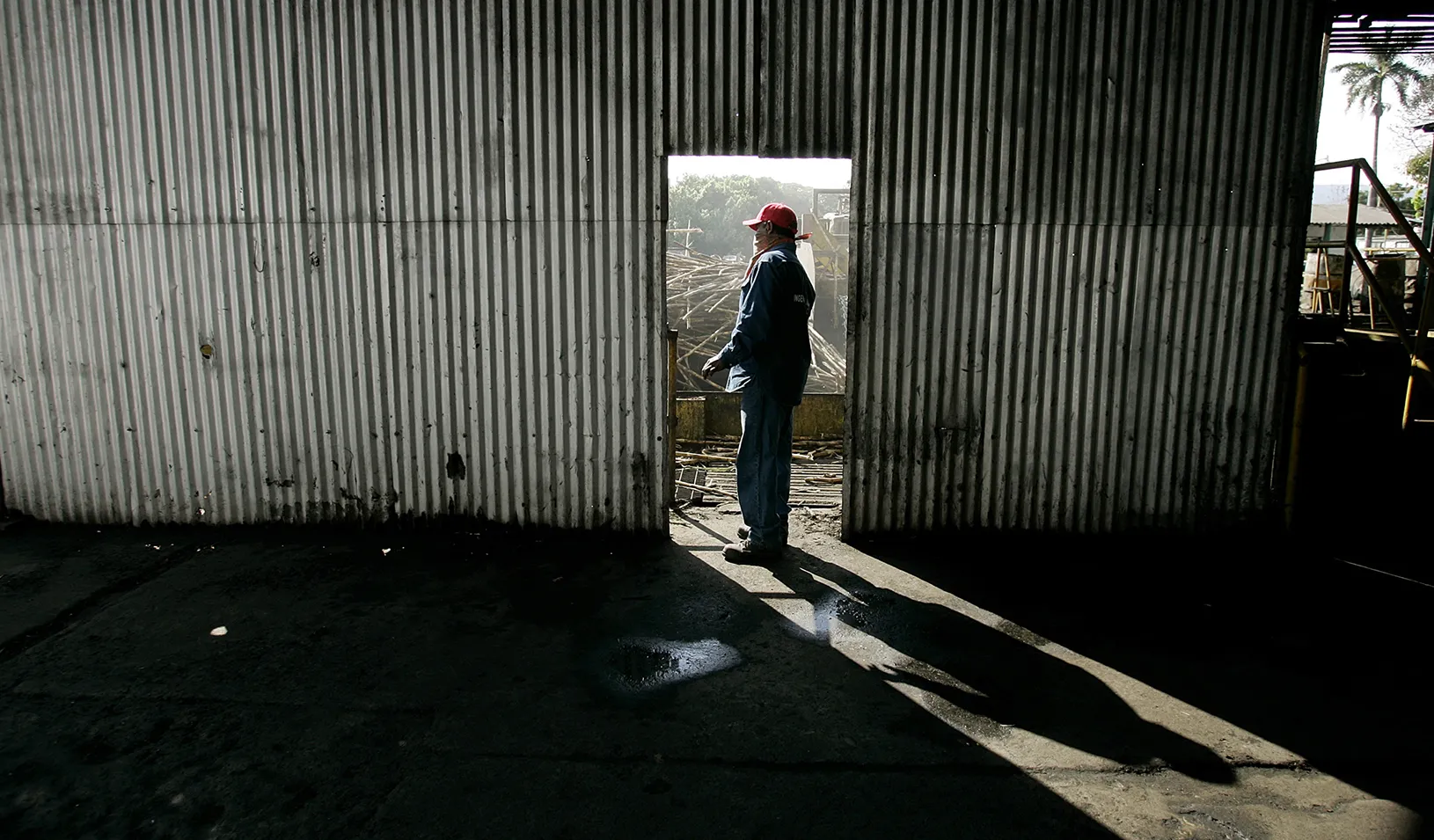June 18, 2015
| by Ian ChipmanShortly after being elected president of Ecuador in 2006, Rafael Correa made good on a campaign promise. He announced plans to unilaterally change the contracts held by foreign oil companies and said he would tax away almost all of the profits for any company that refused to “renegotiate.” The subsequent negotiations resulted in several foreign oil companies losing their assets in Ecuador. It was a major step in Correa’s populist, anti-capitalist crusade.
Foreign investment in Ecuador has since plummeted as a result of the effective expropriation of oil companies’ assets. However, after his 2013 reelection, Correa tried to court just the sort of foreign investment he had scared off, claiming that “the advantages of our country for foreign investment [include] political stability.”
It’s a salient reminder of two things, says Ken Shotts, professor of political economy at Stanford Graduate School of Business. First, political risk is inevitable in any arrangement between a company and a sovereign state. And second, expropriation isn’t simply a matter of greed. The situation in Ecuador and countless other examples offer a lesson in the complex political and fiscal calculus being performed by companies and governments alike. The question, then, is how does one unpack something as nebulous and difficult to predict as political risk.

In a recent paper, Shotts developed a model using game theory to describe this tug of war between companies and governments, profits and taxes, investment and deterrence, and political costs and benefits. In addition to deciphering what motivates a government to expropriate or not, the work also outlines a range of options available to a company to help mitigate political risk.
Here Shotts discusses the challenges of addressing political risk and the importance of integrating an understanding of political risk into a company’s core strategy.
What made you want to study political risk?
It grew out of teaching. I had a student in the Stanford MSx Program a few years ago whose family business — an ecotourism resort — was expropriated by Hugo Chavez. She did a project on her family’s experience, and I thought, “You know, I should start teaching about political risk.”
Now it’s a core part of what I teach, especially in executive education programs. In fact, my Stanford GSB colleague Steve Callander and I are developing a new executive program called Strategy Beyond Markets that covers political risk along with other topics like self-regulation and crisis management.
How do you define this notion of political risk?
People use the term to mean a lot of different things. To me, political risk is any time a government could change its policies in a way that will affect a firm’s profitability. It’s a very broad definition. A government taking over a factory is one example, although that’s more rare nowadays than what’s called “creeping expropriation,” which is the government changing policies in such a way that the firm essentially loses all of its profits. That’s not really any different from taking over the factory, right? You change tax policy or regulations so the firm makes no profits. From the firm’s perspective, it’s the same difference. The most subtle form is currency controls, essentially saying, “I will not let you repatriate profits.” But for analytical clarity, let’s just say it’s the government coming in and taking stuff from you.
A lot of the time when people talk about political risk, they think it’s just something that’s present if you try to invest in Angola, or somewhere there might be a war, like Ukraine. In my view, political risk is present anywhere governments can change their policies. For instance, in the paper I talk about water policy in California and how almond growers are subject to political risk.
Do companies often misunderstand what they’re facing with political risk?
I think the biggest mistake that businesses make is to assume that politicians are crazy, that they’re unpredictable. But it’s really a matter of understanding where they’re coming from, what they care about, and what they’re going to do.
This goes back to the Hugo Chavez expropriation. I always thought Chavez was crazy. But when I was talking with a student — and this woman did not like Chavez, obviously, because he took over her family business —she said, “No, no, no. He was very savvy about this. He was thinking about his electoral support coalition, how to claim as much credit for it as possible. It’s not like he came in and nationalized everything instantly.” So it’s important to think about how politicians have different objectives and activist groups have different objectives. Environmentalists who are trying to stop a mine in Newfoundland and Labrador have different objectives from companies. But companies ought to think, “Let me try to understand them.”
What are those key factors that inform a government’s decision to expropriate or not?
In my research I focus on three factors.
The first one is how much taxes the government gets from the firm. If all of the benefits are going to the company’s bottom line and none are going to the government or society as a whole, then the government is much more inclined to expropriate the firm.
The second factor is the government’s ability to operate the firm’s assets on its own. If the government doesn’t know how to run a factory, then it won’t benefit much from taking it. On the other hand, if the government has technical and managerial expertise — or even if it thinks it has such expertise — then it will be more inclined to expropriate.
The third, and most complicated factor, is what I call political costs and benefits. A politician can get all sorts of benefits from expropriation. For example, Correa proved to voters that he’s a real populist, not a friend of companies. Politicians also can benefit by using a company’s assets for patronage or corruption. But politicians face political costs. If a government gets a bad reputation, this can deter investment, both by its own citizens and by foreign companies. And a government that expropriates also might be sanctioned by its own citizens or by foreign governments. Exactly what these costs and benefits are varies a lot across countries — they might seem puzzling to business people who are new to dealing with this issue, but political scientists have a pretty good handle on these types of things.
What are some of the options a business has to mitigate political risk?
There is this notion of “integrated strategy” that I talk about in the paper, which is an idea that was actually developed here by Dave Baron. It means integrating all components of your business or market strategy with your government relations or public relations strategy. A lot of the time companies say, “We’re going to do our business strategy and then we’ll go hire some people to handle the politics for us.” But for political risk, you can’t do that.
The problem is that what you do in the business affects how the government relations and public relations stuff is going to work. If you’re not hiring locals to work in your factory, then it’s going to be a lot harder to have good government and public relations. So an integrated strategy means that everything a firm does — whether it’s finance, operations, human resources, supply chain, or even pricing— should all be done with an eye to how it affects the political aspects of the firm’s business.
What are the best ways to accomplish that?
One thing that companies can mess up is not laying the groundwork early on for getting a broad support base within an area. You need to plan ahead to share the benefits of the profits. That includes things like sourcing locally more than you need to, employing local labor, training those people up, building roads, hospitals, things like that. Being what people call a good corporate citizen.
Another thing that companies mess up is failing to realize that if they start making a lot of money, then they’re at risk of expropriation, and they need to show that they’re not just coming in and looting the place. There are legitimate objections that people have to their countries being looted. It’s probably good to take seriously the fact that it’s not crazy for people to be mad about that. And to anticipate it and say, “Wow, looks like things are going really well. How are we going to spread the wealth around?”
I don’t think of this as being a pure win-win. Sometimes win-wins exist, and sometimes they don’t. There are real trade-offs between the interests of the company and the interests of the local citizens. Companies like to do things cheaply, and they might not mind polluting or not care how many local people they hire. But when a company pushes as hard as it can on all those things, it’s running other risks. So for strategic reasons, they should be thinking about this stuff very carefully.
So companies need to be thinking about strategies that build meaningful, mutually beneficial relationships with the government and local citizens so that everyone’s incentives are in line. Easier said than done, right?
Yes, it’s normal that firms would really struggle with these things. When it comes to anything benevolent, there is a tendency for companies not to be as rigorous as when they think about traditional “business” decisions. It’s easier just to have a “division of doing good stuff and claiming credit for it” than it is to formulate a serious integrated strategy, which means taking the things we normally think of as being strictly business decisions — like how cheaply you can pay your labor or where you’re sourcing — and realizing that those things matter for other reasons. They need to take those things they’re being hardnosed and quantitative about and add in this thing that is impossible to quantify. And the horrible thing is that it really is impossible to quantify. The killer question I always get and can’t answer is how do you assess your return on these investments. Even for people who have a good understanding of how governments and politicians work, that’s tough to do.
If it’s so hard to quantify the return on investment in this type of integrated strategy, how reasonable is it to expect that companies will go for it?
I think it’s hard, and it gets pushed out very naturally, especially when times are rough. It’s easy to cut corners on things that don’t yield clear, short-run returns. But it’s also very risky to ignore these issues. Doing it well requires building it into the company’s culture, because there are so many people who have to be involved.
Who stands to gain the most by understanding your work here?
Some companies are already very savvy about it, especially ones that deal with this stuff all the time. To me it’s most important for companies that are moving into new international environments. I also hope it would resonate with rapidly growing companies, but that’s often challenging. With most people, the things on their mental agenda are the issues they’ve dealt with in the recent past. For rapidly growing companies, that’s things like how do we hire the right engineers. When it comes to their non-market strategy, they’re not paying attention, not paying attention, not paying attention, and then all of a sudden — bang! It’s huge to them.
For media inquiries, visit the Newsroom.






